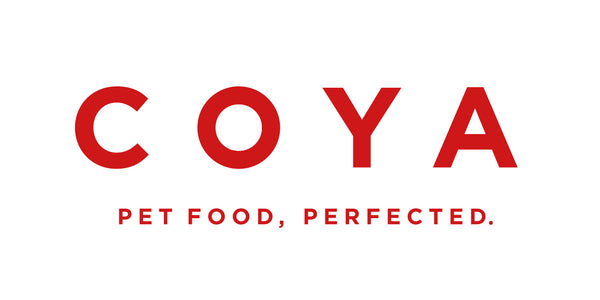
What is 80/20?
Share
80/20 Dog Food
The term “80/20 dog food” typically refers to a diet that consists of 80% meat and 20% other ingredients such as fruits and vegetables. This ratio is often associated with the concept of a more biologically appropriate and natural diet for dogs. Here are some reasons why feeding this diet can help your dog thrive.
High protein content
Dogs are carnivores by nature, and a diet rich in animal-based proteins is often believed to be more suitable for their nutritional needs. The 80% meat content in this type of dog food provides a significant amount of protein. This is essential for muscle development, repair, and overall health.
Natural and minimally processed
Many 80/20 dog foods emphasise using natural, whole-food ingredients and avoiding excessive processing. This approach aims to provide dogs with a diet that more closely resembles what their ancestors ate. It often involves using human-grade meats, vegetables, and other ingredients without artificial additives or preservatives.
Potential allergen reduction
Some dogs may have allergies or sensitivities to certain ingredients. These are commonly found in more traditional commercial dog foods, such as grains or artificial additives. By focusing on high-quality meats and minimising potential allergens, an 80/20 dog food may help alleviate allergic reactions or digestive issues in some dogs.
Improved digestibility
Dogs can digest and utilise animal proteins more efficiently than plant-based proteins. The higher meat content in dog food is believed to provide dogs with a diet that is easier to digest. This potentially reduces digestive problems like bloating or gas. This often leads to smaller, firmer, and less odorous stools, making cleanup easier and indicating better nutrient absorption. Many dogs with sensitive stomachs or digestive issues find significant relief on an 80/20 diet.
Species-Appropriate Nutrition
Dogs are facultative carnivores, meaning their digestive systems are primarily designed to process meat. A high-meat diet mirrors what their ancestors would have eaten in the wild. This leads to better nutrient absorption and overall health.
Reduced Fillers & Allergens
By focusing on a high-quality 80/20 ratio, you naturally minimise the presence of common fillers. Grains, corn, and soy, can be difficult for some dogs to digest and may trigger allergies.
Enhanced Skin and Coat Health
High-quality animal proteins and essential fatty acids from meat and certain plant ingredients contribute to a lustrous, shiny coat and healthy, supple skin. You may notice reduced shedding and an improvement in conditions like dryness or irritation.
Sustained Energy & Vitality
Unlike diets heavy in carbohydrates that can cause blood sugar spikes and crashes, an 80/20 diet provides consistent, stable energy throughout the day. This helps keep your dog active, engaged, and full of life without the "sugar slump" often seen with highly processed foods.
Healthy Weight Management
High-protein diets promote a feeling of fullness. This can help prevent overeating and support healthy weight management. Dogs tend to maintain lean muscle mass while shedding excess fat. This is particularly beneficial for active dogs or those prone to obesity.
Stronger Immune System
A healthy gut is intrinsically linked to a strong immune system. The nutrient-dense nature of the 80/20 diet, with its natural vitamins, minerals, and antioxidants, supports your dog's natural defences. This helps them fend off illness and maintain overall well-being.
Reduced Allergies and Sensitivities
By eliminating common fillers like grains, corn, and soy, which can be frequent allergens for dogs, an 80/20 diet can significantly reduce the incidence of food-related allergies and sensitivities. This can alleviate symptoms such as itchy skin, ear infections, and digestive upset.
It’s important to note that all dogs are different and each dog has unique nutritional needs based on factors like breed, age, activity level, and underlying health conditions. Consulting with a veterinarian or a veterinary nutritionist is recommended before making any significant changes to your dog’s diet to ensure it meets their specific requirements.

